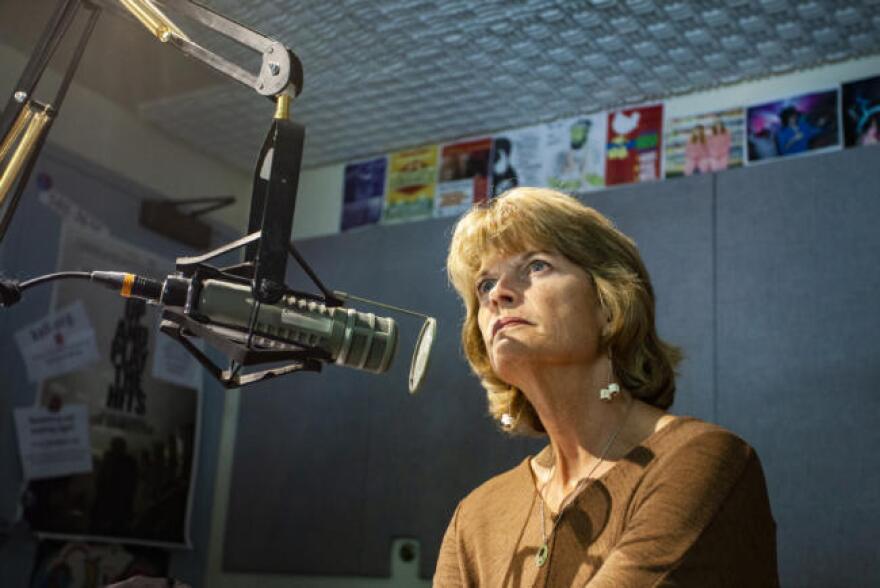The fate of Alaska’s smaller public radio stations is in doubt after Congress passed a bill to defund the Corporation for Public Broadcasting.
The House passed the bill overnight Thursday, 216-213. Alaska Congressman Nick Begich voted yes. That came less than 24 hours after the bill cleared the Senate, despite opposition from Sen. Lisa Murkowski.
Murkowski voted for several amendments from Democrats to preserve part or all of $1.1 billion for public broadcasting. All of them failed.
Conservative Republicans said they wanted to defund NPR in particular, because they consider its content too left-wing.
Murkowski then offered an amendment to just defund NPR and keep the money flowing to rural stations. That amendment failed, too, with Murkowski and Sen. Susan Collins of Maine as the only Republicans to support it.
“Even though what I offered was exactly what my colleagues were calling for,” Murkowski said. “Every time they spoke about public broadcasting in the negative they used words like, ‘It's a radical liberal agenda.’ And their reference was not to the emergency early warning system. It was not to the children's TV programming.”
Now, Murkowski said, she’s focused on what Alaska’s rural stations need to stay on air, and she’s not seeing a lot of opportunity. CPB is the main source of funding for many of Alaska’s 27 public radio stations and a significant contributor to Alaska Public Media’s budget, too.
“I have no surety that these small stations that provide such important connections within their community are going to be able to stay afloat,” she said.
The general managers of rural stations in Alaska have warned about that, too, though some are still holding out hope for other funding.
One source might be a $10 million fund at the Interior Department, in the Bureau of Indian Affairs, that assists tribal stations. Murkowski said a dozen Alaska stations might qualify.
“But when we've talked to folks over at Interior about how this is all going to work, it's truly radio silence,” she said. “And I don't think they're denying us information. I think they truly do not know.”
Even if they are eligible, Murkowski said Alaska stations would have to compete with stations in other states for a share of the $10 million and can’t bank on getting any of it.
Though the Senate has now voted to claw back two years of funding for the Corporation for Public Broadcasting, the corporation still exists. Congress could appropriate new money for it to send to rural stations. Murkowski said that would be a tough sell to her Republican colleagues.
“I will just remind you of that vote that you saw last night on my amendment,” she said. “It was made very, very clear — and I don't have the tweet in front of me, you've seen it — but the president said … basically, ‘Anybody who wants my endorsement, you better not support the Corporation for Public Broadcasting.’”
Murkowski said she hasn’t given up on sending money to CPB. She hopes public radio and tv supporters around the country are “going to start weighing in with their lawmakers, Republicans and Democrats, and saying, ‘Hey, how are we going to keep this alive?’”
Sen. Dan Sullivan didn’t grant an interview request to explain why he voted against Murkowski’s amendment. He has described himself in letters to constituents as a supporter of funding for public radio stations. In 2020, he accepted a “champion of public broadcasting” award from America's Public Television Stations.
A Sullian spokeswoman said by email that Sullivan has warned for years that NPR is biased, but that he is talking to the Trump administration about finding support for rural Alaska stations.
Having cleared both chamber of Congress, the rescission bill heads to President Trump to sign into law.
Editor's note: Alaska Public Media receives funding from the Corporation for Public Broadcasting. This story was written and edited within the Alaska Public Media newsroom, and no Alaska Public Media executives outside the newsroom reviewed it before publication.
This story and headline have been updated to reflect the bill's passage in the House.



